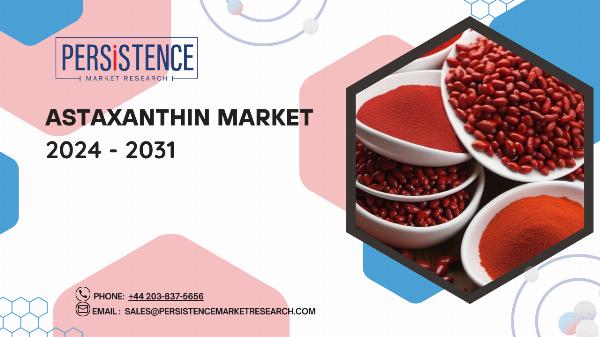Astaxanthin in Black Beans: The Truth

Strong 8k brings an ultra-HD IPTV experience to your living room and your pocket.
Astaxanthin and black beans are both celebrated for their numerous health benefits, particularly their antioxidant properties. Astaxanthin, a powerful carotenoid, is known for its ability to combat oxidative stress, while black beans are packed with nutrients and plant-based antioxidants. But is there any truth to the claim that black beans contain astaxanthin? In this blog, we’ll dive into the facts behind this misconception and explore the true health benefits of both black beans and astaxanthin.
For More Industry Insight: https://www.persistencemarketresearch.com/market-research/astaxanthin-market.asp
Understanding Astaxanthin
Astaxanthin is a reddish-pink pigment found mainly in marine organisms like microalgae, krill, shrimp, and salmon. It belongs to the carotenoid family, a group of pigments responsible for bright colors in many fruits, vegetables, and marine life. Astaxanthin is recognized as one of the most powerful natural antioxidants, providing a wide range of health benefits, including:
Reducing oxidative stress: Astaxanthin neutralizes free radicals, which are harmful molecules that can damage cells and accelerate aging.
Supporting eye health: It helps protect the eyes from damage and is used to reduce the risk of age-related macular degeneration (AMD).
Enhancing skin health: Astaxanthin improves skin elasticity, reduces wrinkles, and protects against UV damage.
Promoting heart health: By reducing inflammation and improving blood flow, astaxanthin helps support cardiovascular health.
Given its extensive benefits, astaxanthin is widely used in dietary supplements, skincare products, and even animal feed. However, astaxanthin is derived primarily from marine sources, which brings us to the question: does it exist in black beans?
Black Beans: Nutritional Powerhouse
Black beans are a staple in many diets worldwide, particularly in Latin American cuisine. They are known for being nutrient-dense, providing an excellent source of plant-based protein, fiber, and essential vitamins and minerals such as iron, magnesium, and folate. Black beans also contain antioxidants, including flavonoids and anthocyanins, which contribute to their health-promoting properties.
Rich in fiber: Black beans are high in dietary fiber, which supports digestion, promotes satiety, and helps regulate blood sugar levels.
High in protein: As a plant-based protein source, black beans are an excellent option for vegetarians and vegans.
Loaded with antioxidants: The dark color of black beans is due to anthocyanins, a type of flavonoid with antioxidant and anti-inflammatory properties. These antioxidants help protect cells from oxidative stress and reduce the risk of chronic diseases like heart disease and diabetes.
The Truth: Do Black Beans Contain Astaxanthin?
The simple truth is that black beans do not contain astaxanthin. This misconception likely arises from the fact that both black beans and astaxanthin are rich in antioxidants, leading some people to assume they might share similar compounds. However, black beans and astaxanthin come from completely different sources and offer different types of antioxidants.
Black Beans: Contain anthocyanins and flavonoids, which are plant-based antioxidants that protect against oxidative stress, reduce inflammation, and promote heart health.
Astaxanthin: Is a carotenoid found in marine organisms like salmon and microalgae. It provides powerful antioxidant effects and protects against cellular damage, particularly in the skin, eyes, and cardiovascular system.
While black beans are a valuable source of nutrients and antioxidants, they do not contain astaxanthin. However, both black beans and astaxanthin contribute to overall health, and including both in your diet can provide complementary benefits.
Complementary Health Benefits of Black Beans and Astaxanthin
Though black beans and astaxanthin are not directly linked, consuming both can offer a wide range of health benefits. Let’s look at how they can work together to improve overall wellness:
1. Enhanced Antioxidant Protection
Black beans are rich in anthocyanins, which help neutralize free radicals and reduce oxidative stress. Astaxanthin, on the other hand, is a much stronger antioxidant that can handle multiple free radicals simultaneously, providing even greater protection. By including both black beans and astaxanthin in your diet, you can benefit from a more diverse range of antioxidants that target different forms of oxidative damage.
2. Cardiovascular Support
Both black beans and astaxanthin have heart-protective properties. Black beans are high in fiber, which helps lower cholesterol levels and reduce the risk of heart disease. Astaxanthin’s ability to improve blood flow, reduce arterial stiffness, and combat inflammation makes it an excellent supplement for cardiovascular health. Together, they offer a powerful combination for maintaining a healthy heart.
3. Improved Skin Health
Astaxanthin is well-known for its benefits to skin health, helping reduce wrinkles, improve skin elasticity, and protect against UV damage. While black beans don’t have the same direct effects on the skin, they are rich in essential nutrients like iron and zinc, which promote healthy skin by supporting cell regeneration and healing. A balanced diet that includes both black beans and astaxanthin can lead to healthier, more youthful-looking skin.
4. Nutrient-Rich Diet
Black beans are an excellent source of plant-based protein, fiber, and a variety of essential nutrients, making them a healthy addition to any diet. Astaxanthin offers potent antioxidant protection and can be easily incorporated through supplements or foods like salmon or shrimp. Together, they provide a well-rounded nutritional profile that supports overall health and wellness.
How to Incorporate Black Beans and Astaxanthin into Your Diet
Here are some easy ways to add both black beans and astaxanthin into your daily routine:
Black Beans: Include black beans in salads, soups, or rice dishes. They can also be blended into dips or used as a filling for tacos, burritos, or wraps.
Astaxanthin: If you don’t regularly consume astaxanthin-rich foods like salmon or shrimp, consider taking an astaxanthin supplement. Be sure to choose a high-quality supplement derived from natural sources like microalgae.
Conclusion
Note: IndiBlogHub features both user-submitted and editorial content. We do not verify third-party contributions. Read our Disclaimer and Privacy Policyfor details.


